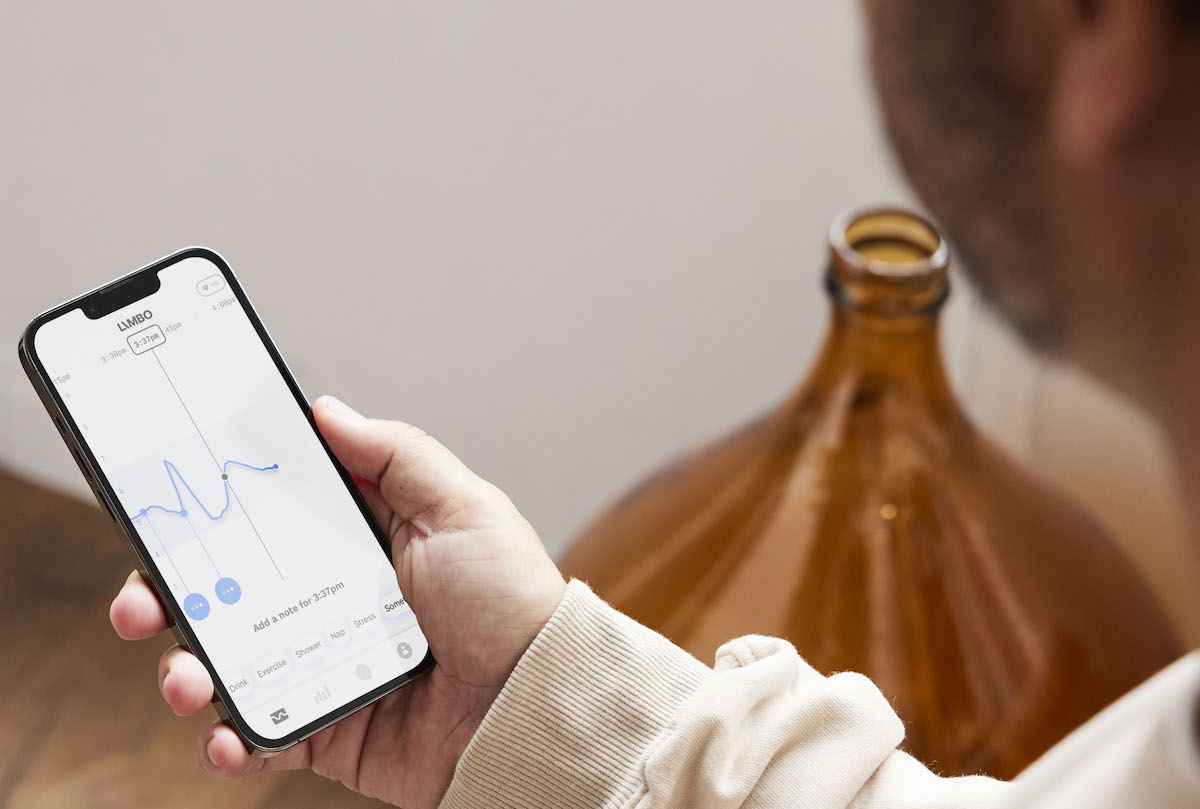
Could stress be stopping your weight loss?
Stress causes a series of physiological reactions in your body; and these, if prolonged, can stop you losing weight. Here’s why.
Daithi was totally confused by what he was seeing on the Limbo app. He hadn’t eaten anything that he knew would spike his blood glucose levels, he had just been working, and yet there was a spike and it had taken a while to come down.
It had been a stressful day. Daithi runs his own whiskey making business and clients call day and night because of the international reach. “It was quite interesting to see that spike." he said. "It made me realise that it's not just about what you eat, how you move and how you sleep, but blood glucose is impacted by your stress levels too. Actually seeing this made me think that I need to stay a bit more mellow."

Stress messes with your hormones
Limbo’s Chief Research Officer Tony Martin explains that stress causes a set of physiological reactions in the body, including a pulse of adrenaline that prepares your body for fight or flight - an evolutionary throwback from when humans needed to act fast to survive.
Your body is well equipped to handle daily stresses and hormones play an important role. For example, we get a little pulse of adrenaline when we wake up in the morning. The hormone is a signal which leads your body to increasing blood to your vital organs and you start taking more blood into your muscles. It also makes you more alert and increases heart rate. Glucose levels in the blood rise to enable all of this to happen – so you have the energy ready for imminent action.
However, in situations of prolonged stress, our bodies produce a stress hormone called cortisol. This leads to what Tony calls “physiologically inappropriate, conditioned responses”. Our body thinks it needs to stay on high alert for a threat of some sort and therefore the levels of glucose in the blood will remain high.
Your body reacts to stress disproportionately
Tony adds: “In this situation, the normal hormonal systems that control eating are out of balance. Your body is sending you the message that you need high energy, high taste foods. But your signals are out of whack. You don’t actually need the energy your body wants while it is inappropriately in fight or flight mode. After all, you're more likely to be sat at a desk with this stress than dealing with the threat of wild predators jumping out at you.”
When you're stressed, you can end up compelled to keep adding energy (in food and drink) because your body is telling you to. If you want to lose weight, you need your body to seek out and get its energy from your fat stores - so you need to get the right balance instead of putting too much new energy into your system.
Krisha Mirpuri lost 8kg in four months but key in her journey was recognising this exact reaction. She would leave a stressful meeting and immediately seek out the chocolate biscuits. She realised that she needed to stop when she would then watch her glucose levels spike in the Limbo app.
“I was doing myself more damage eating foods that were not the right choice for my body than the damage that was being done by the stress of the meeting,” she explains. Instead, Krisha learnt to remove herself from the stressful situation when possible and then she would take herself for a walk around the block. “I’d ended up in this horrible kind of up and down cycle and so I started taking control over the external factors that I could instead of letting them control me.” Weight loss came thanks to this recognition and the resultant habit changes.

Tony, who has studied the science of blood glucose for many years, suggests that a walk can be a good solution for stress. “If it’s a high pressure situation that you can’t leave, just give yourself little breaks. Be stressed for 40 minutes, then step back. Take a break; and keep repeating. If you're able to do so, even a quick walk can have a huge effect on your physiology. Including giving your body a chance to lower the amplitude of glucose spikes from stress.
Limbo's consultant GP Dr Pat Heath adds that hydration is also an important factor to helping your body manage stress. He also advocates breathing techniques to help get you out of that unnecessary fight or flight and avoid your body reacting in an acute way when you are facing a stressful situation.
Recognising what is causing the stress and using this knowledge to mitigate it can help you navigate both stress and weight management. A few moments of mindfulness and self-care can have a huge impact. Start consciously dealing with the stresses you face day to day and you may find you've unlocked the part of weight loss you hadn't thought about.